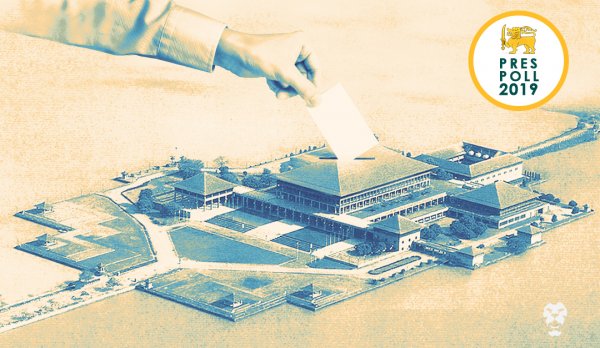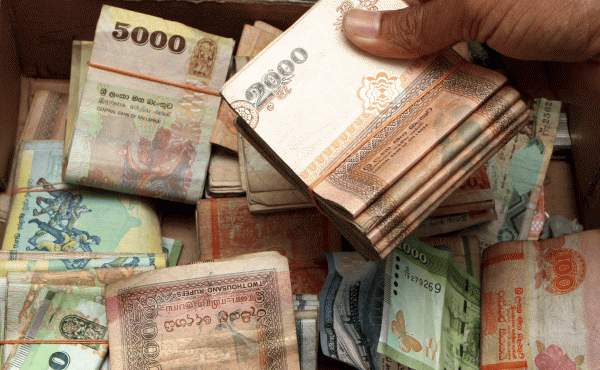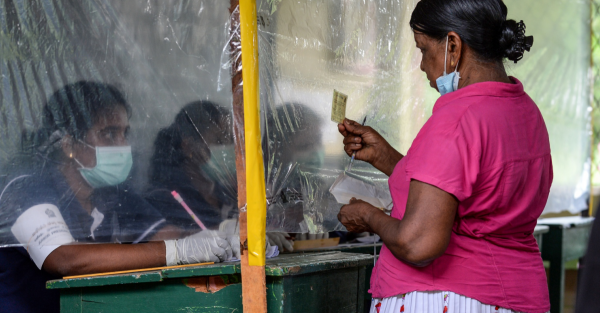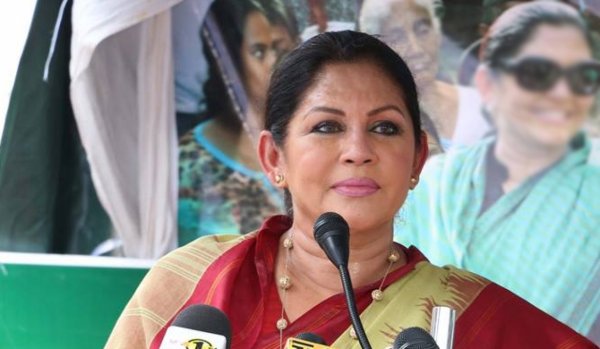
A young male tourist sits cross-legged outside the Fort Railway Station in Colombo. Arranged neatly in front of him are rows of colourful wristbands. To his left, a cardboard sign on which is penned the words, ‘I’m travelling the world, could you support me please?’—replicated in Sinhalese on his right.
The image caused some outrage, locally on social media, one user writing, ‘This is an awful trend where privileged, white people misuse and take advantage of people more vulnerable than them and skirt immigration law simply because they have passports from powerful countries,’ with another chiming in, ‘If I decided to sell bracelets near Amsterdam Central, I’d be in jail before I could lay my stuff out. This is so wrong.’
‘Beg-packing’
This controversial trend of ‘begpacking’ has spread through South-East Asia and South Asia over the last few years. Also known as ‘millennial begpackers’, the phrase is a play on the term ‘backpackers’ and the act of ‘begging’ by these tourists, who either outright ask, perform on the street, or sell trinkets to fund their travels.
Although still quite rare for Sri Lanka, in 2014, a 24-year-old British tourist was taken into custody in Ella, for playing the violin on the roadside near the famed ‘Ravana Ella’ (Ravana Falls)—she claimed she had run short of funds for her daily expenses.
While budget travel is now a common and accepted practice, begpackers espouse an entirely different set of ideals: begpackers appear to outright reject consumerism and are perfectly comfortable with travelling with no money, and asking or ‘earning’ it, when necessary.
This new opportunism has received angry backlash from host countries whose hospitality is being exploited. It has been branded as ‘self-indulgent’ and a product of ‘white privilege’, and an ‘utmost form of irresponsibility to ask/beg people to help you fund your leisure’.
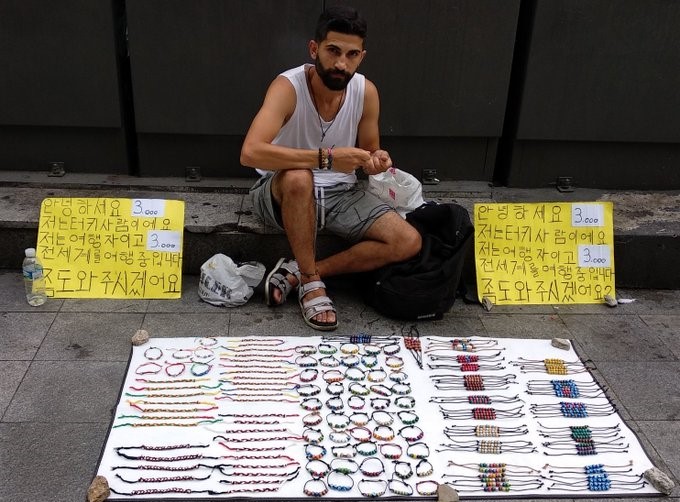
Photo credits: Twitter/Raphael Rashid
Images and videos cropping up online show the trend is extremely prevalent in countries like Indonesia, Thailand and Hong Kong. In one video, a furious local in South Korea is expressing his anger at a foreigner earning money by performing on his guitar.
Another post went viral with anger directed towards two tourists begging opposite a soup kitchen for the homeless and elderly in Seoul, while in Malaysia, a video of a Russian couple swinging their baby in an unusual musical performance on the street sparked outrage and led to their subsequent arrest.
The main thrust in the arguments against begpackers is that in many cases the locals who donate money to begpackers may be poorer than the tourists themselves. This is something clearly understood by many other backpackers who distance themselves from begpackers. “I personally think this is quite ignorant,” said Lisa Berghman (29) a backpacker from Belgium, travelling across Sri Lanka with her husband. “You have to think of the locals, the vendors and also what kind of country you are going to.”
Begpacking, Scamming—Or Both?
While begpackers may try to legitimise their appeal for funds in the form of some enterprise, another increasingly popular form racketeering is scamming with stories of distress, lost wallets, and passports.
“I was walking near Park Street on the way to Odel, when this foreigner came and spoke to me. He was Australian—I could tell from the accent—and he asked me for directions to Pettah. He looked quite troubled,” Mihindu* (25) told Roar Media about his experience with a begpacker in the heart of Colombo, about a year ago.
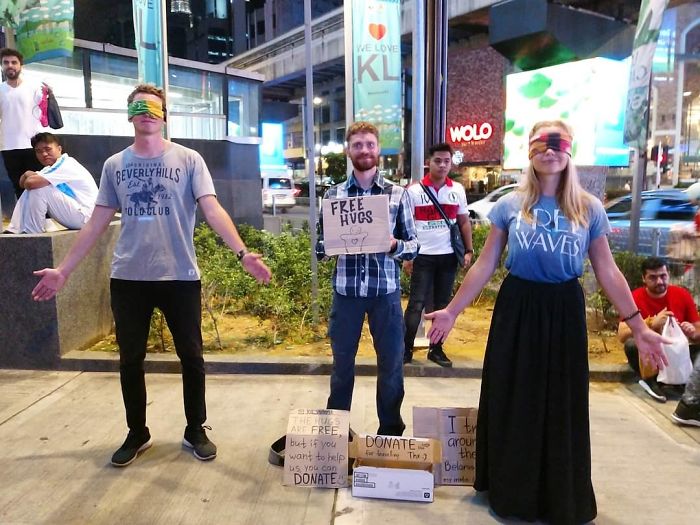
Photo Credits: Instagram/elquiqueleon
“Then he started telling me about how he had not been able to get back to his hostel last night, how he had to sleep on a bench, and how he was having a really tough time. He asked me if I could lend him Rs. 4,000, and said that he would pay me back. I didn’t expect he would, and so I gave him Rs. 200, enough to take a trishaw to Pettah.”
Sharmila* (27) was approached by a tourist a few months ago, who told her his pregnant wife had fallen down the stairs and that he was having trouble with his hospital bills. “I thought, this is probably a scam, but what if his wife is really injured? On the off-chance that that is true, I thought I’ll give him money,” she said.
Legality
Even as most people react with outrage and anger to these incidents of begpacking or scamming of locals, there are those that suggest we be not so quick to judge, pointing out that these tourists may indeed be in trouble and be seeking help.
However, the illegality of their enterprise, as well as the fact that any traveller in true distress or in dire need of help can always reach out to the embassies of their own countries rather than appeal to the kindness of possibly less-affluent locals has been repeatedly pointed out.
Many countries are now reacting strongly to these new tactics: Hong Kong has implemented new laws against street performers, Thailand now requires tourists to show proof of travel and Indonesia sends begpackers straight to their respective embassies.
But Sri Lanka is yet to effectively counter this malaise. “In Sri Lanka, begging or working while on a tourist visa is illegal, but policing this can be quite difficult,” Udana Wickramasinghe, Director Research & International Relations at the Sri Lanka Tourism Development Authority (SLTDA) told Roar Media.
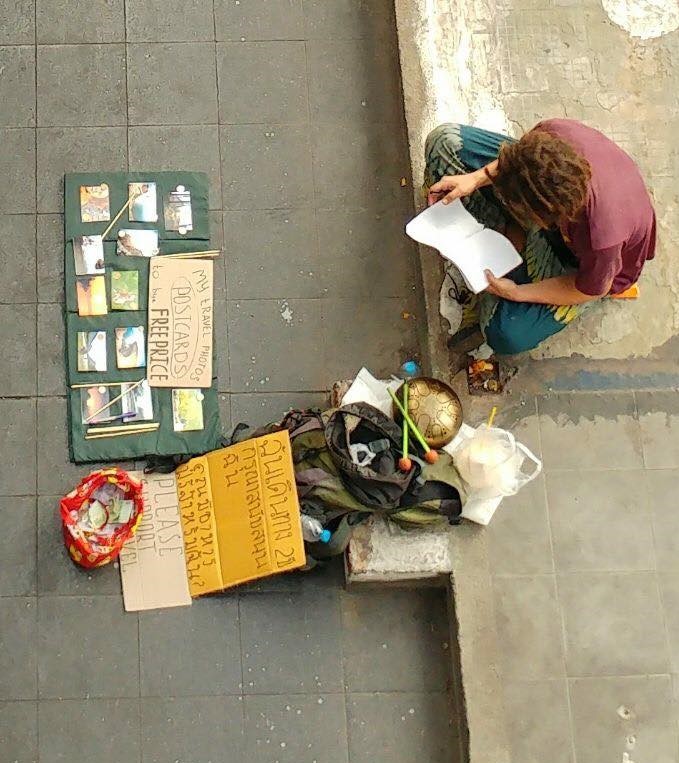
Photo Credits: Facebook/Begpackers in Asia
The countries and their locals are frustrated with the blatant exploitation and financial drain on the country. “When a tourist goes to another country there is a cost that has to be borne by the host country, and this trend [begpacking] can impact the country negatively,” Wickramasinghe said.
In 2018, tourism was the third-largest foreign exchange earner for Sri Lanka. Tourist receipts—revenue earned by a country from inbound tourism—grew by 19 percent from 2017 to Rs. 711, 961 million. And, of the total revenue collected by public institutions in 2018, the top contributors were fees at Sri Lanka’s cultural triangle, embarkation taxes, and wildlife parks.
But according to Wikcramasinghe, the trend of begpacking can attract the wrong kind of traveller. The country’s focus, in terms of tourism, is on persons who will have a high yield and begpackers do not fall into this category. “Any country will consider this,” he said, in perhaps an indication of more stringent policies to follow.

